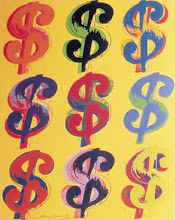I want to isolate the figure/identity of the speaker protected in the U.S. Supreme Court's ruling in
Citizen's United vs. FEC. As most know, the ruling protected the ability of a corporation to spend money from its general treasury money as "independent expenditures" (term of art) to fund "electioneering communication" (term of art). In ruling on the constitutionality of the Bi-Partisan Campaign Finance Reform Act of 2002 (BCRA), the court had previously upheld BCRA's restrictions on such independent expenditures because of the principle laid out in Austin v Michigan Chamber of Commerce that advanced a state interest in combatting corruption. To make its ruling in Citizens United, the court decided that it had to return to the reasoning in Austin to decide whether or not Austin's reasoning should continue to guide future judgments about corporate expenditures. Citizens United overruled Austin.
For the Court in Citizen's United, Austin was inconsistent with two more important decisions: Buckley and Bellotii. Regarding the existence of a corporate free speech right, the syllabus for Citizen's United highlights "The Court has recognized that the First Amendment applies to corporations, e.g., First National Bank of Boston v. Bellotti ... and extended this protection to the context of political speech, see e.g. NAACP v. Button." For the Court the line from Buckley to Bellotti was, more or less, consistent and Austin disrupted this line of reasoning. To overturn Austin was not so much a radical departure from precedent, as a return to the better line of precedent begun with Buckley.
For Citizen's United, the restriction on speech justified by Austin's corruption standard, unconstitutionally singled out a class of speakers (corporations). Bellotti refused this restriction because political speech was “indispensible to decision making in a democracy, and this is no less true because the speech comes from a corporation “ (Belloti, 777). The syllabus summarizes the reasoning of the Court: "The Court returns to the principle established in Buckley and Bellotti that the Government may not suppress political speech based on the speaker's corporate identity. No sufficient Government interest justifies limits on the political speech of non-profit or for profit corporations." The rhetorical movement of Citizen's United creates a restoration narrative: the proper precedent (Buckely/Bellotti) has been returned to the throne, and the illegitimate precedent (Austin) has been banished.
The government interest that failed revolves around the problem of corruption. We will return to corruption in another post. I am less interested in crafting a new government interest as much as I am interested in isolating the corporate identity of the speaker. To get the ball rolling, what if we speak of a democratic interest as one way to ground a normative investment in competing visions of rhetorical politics? For Colin Crouch a difference exists between a democratic model and a post-democratic model of political participation. Forgive the long quotation from Crouch:
Democracy thrives when there are major opportunities for the mass of ordinary people actively to participate through discussion and autonomous organizations, in shaping the agenda of public life, and when they are actively using these opportunities (p. 2) … It is an ideal model , which can almost never be fully achieved, but like all impossible ideals, it sets a marker (p.3) ... Under US Influence democracy is increasingly being defined as liberal democracy; an historically contingent form, not a normative last word … This is a form that stresses electoral participation as the main type of mass participation, extensive freedom for lobbying activities, which mainly means business lobbies, and a form of polity that avoides interfering with a capitalist economy. It is a model that has litltle interest in widespread citizen involvment or the role of organizations outside the business sector. Satisfaction with the unambitious democratic expectations of liberal democracy produces complacency about (end p. 3) the rise of what I call post-democracy. Under this model while elections certainly exist and can change governments, public electoral debate is a tightly controlled spectacle, managed by rival teams of professional experts in the techniques of mass persuasion, and considering a small range of issues selected by those temas. The mass of citizens plays a passive, quiescent, even apathetic part, responding only to the signals given them.. behind this spectacle of the electoral game, politics is really shaped in private by interaction between elected governments and elites that overwhelmingly represent business interests (p.4). [ Colin Crouch, Post-Democracy, Cambridge: Polity Press, 2004]
It is easy to translate Crouch's normative investment in the kinds of political participation in democracy and post-democracy as two different kinds of rhetorical politics. If a democracy interest informs the choice between different rhetorical politics, then a distinction between speakers is relevant. Corporate speakers/money/speech is more dominant in post-democratic rhetorical politics while the "mass of ordinary people" are more dominant in democratic rhetorical politics. Moreover from a democratic interest one can justify a distinction between for profit and non profit corporations. The more profit driven a corporation the more likely their participation swings in the direction of post-democratic rhetorical politics.
While Citizens United advances the claim that no "government interest" exists to justify limits on the corporate identity of the speaker, a democratic interest embedded in the form of rhetorical politics provides both a reason to limit the speech of a corporate speaker, and, perhaps more radically, a reason to deny corporations the identity of speaker in the first place.




No comments:
Post a Comment